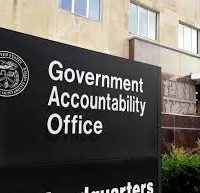
According to a report by the U.S. General Accountability Office (GAO), as of September 30, 2023, American Samoa’s total public debt outstanding was $145.4 million—a 10 percent decrease from fiscal year 2022. American Samoa has not issued new debt since 2021.
The GAO said American Samoa officials confirmed no general revenue bonds have been issued since June 2021. Part of the proceeds from the 2021 bonds financed the acquisition and construction of new building for the legislature and high court. Territory officials said they may refund some of the government’s 2015 bonds in 2025 to reduce debt service cost through a lower interest rate.
As of April 2025, Moody’s has maintained its stable outlook and Ba3 credit rating for the government of American Samoa. The Ba3 rating means that bonds issued by American Samoa are considered non-investment grade and subject to substantial credit risk. According to Moody’s November 2024 report, the rating takes into consideration several factors, including:
- The territory’s small and volatile economy
- The concentration of employment in government and tuna packing
- Very low resident income levels
- Above-average long-term liabilities
- Risks associated with operating a government-owned charter bank.
- The significant threated posed by sea-level rise.
American Samoa’s Gross Domestic Product (GPD) was $840.8 million in fiscal yea 2022, representing a 1 percent increase from the previous year when adjusted for inflation. Similarly, between fiscal years 2018 and 2022, the territory’s real GDP grew by an average of about 1 percent annually. However, GAO noted that the local economy continues to face risks due to its dependence on the tuna canning industry and territorial government, along with challenges related to economic diversification and climate risks.
The GAO had previously reported that the StarKist Samoa—the sole tuna cannery remaining in the territory—faces ongoing challenges. Both territorial and StarKist officials cited the importance of a federal tax credit to the tuna industry, noting that the credit’s temporary nature contributes to economic uncertainty. StarKist officials also mentioned challenges in meeting the territory’s minimum wage increases.
According to the U.S. Bureau of Economic Analysis, fish exports from American Samoa declined 29 percent in 2021 compared to 2020. More recently, the U.S. Bureau of Economic Analysis reported that fish exports increased 3 percent in 2022 when compared to 2021.
In June 2020, the GAO reported that the government was investing in developing a call center industry to diversify the territory’s economy. In its June 30, 2025, report, GAO said that as of March 2025, territorial officials had entered the design phase of the call center building, identified a location, and selected the company that will construct the building.
Territorial officials added that the cost of broadband internet and electricity remains a barrier for businesses. To address the cost of broadband and improve overall economic development, American Samoa officials have developed a broadband strategy and identified priorities and actions to increase broadband across the territory. According to officials, they are enhancing high-speed broadband infrastructure to continue developing the territory’s technology sector.
A positive finding in the GAO report is that American Samoa has submitted its yearly single audit reports on time since at least 2017.
Furthermore, the audit opinion on the territory’s financial statements has recently improved. The territory received an unmodified (clean) audit opinion on its most recent fiscal year 2023 financial statements—after several years of receiving qualified opinions. Additionally, American Samoa received a clean opinion on each of its major federal award programs, meaning auditors found no compliance issues that had a direct and material effect on those programs.
However, the territory’s independent auditors have identified a recurring material weakness in internal control over financial reporting related to its financial close and reporting process. This weakness, said GAO, has reduced the government’s ability to produce timely and reliable financial reports on a monthly, quarterly, and annual basis without significant post-closing adjustments. Auditors also reported that the territory has not established required quality control procedures for one of its federal award programs. As a result, there are no monitoring controls in place to ensure compliance with the federal award program’s requirements.
American Samoa’s auditors did not identify any questioned costs in fiscal year 2023.
The GAO emphasized that:
- Timely and reliable financial data provide important information for investors, policymakers, oversight bodies, and the public on the financial and economic condition of the territory.
- Robust internal controls are important to support managers as they make financial decisions or adapt to shifting environments, evolving demands, changing risks, and new priorities as they arise.
- Strong controls over compliance help ensure federal award programs meet objectives and are compliant with applicable laws and regulations. Furthermore, they reduce the risk that territories will have to return disallowed costs or be excluded from future federal funding due to noncompliance with federal award program requirements.





